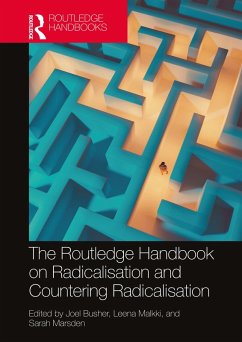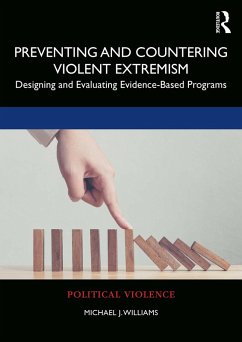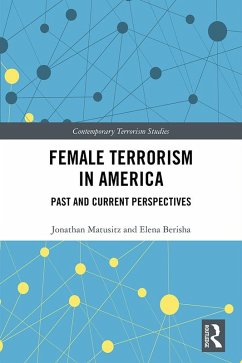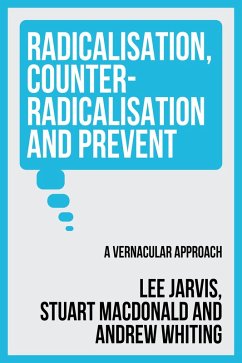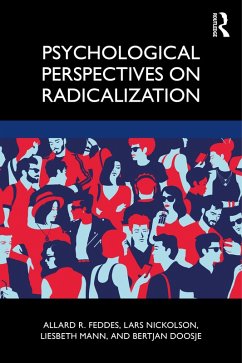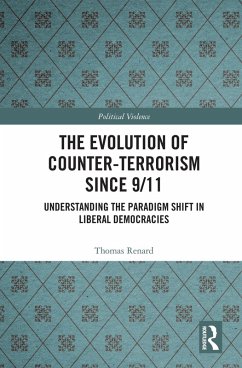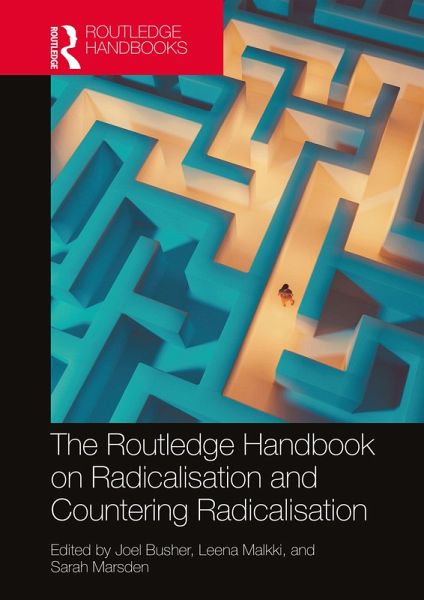
The Routledge Handbook on Radicalisation and Countering Radicalisation (eBook, ePUB)
Versandkostenfrei!
Sofort per Download lieferbar
47,95 €
inkl. MwSt.
Weitere Ausgaben:

PAYBACK Punkte
24 °P sammeln!
This handbook provides a theoretical and methodological exploration of the research on radicalisation and counter-radicalisation, one of the most influential concepts in Security Studies, International Relations, and Peace and Conflict Studies.Sitting at the heart of high-profile research and policy agendas on preventing and countering violent extremism (P/CVE), radicalisation as a concept has transformed the way researchers, policymakers, and societies think about how to counter terrorism and political violence. Deliberations about radicalisation and countering radicalisation have become furt...
This handbook provides a theoretical and methodological exploration of the research on radicalisation and counter-radicalisation, one of the most influential concepts in Security Studies, International Relations, and Peace and Conflict Studies.
Sitting at the heart of high-profile research and policy agendas on preventing and countering violent extremism (P/CVE), radicalisation as a concept has transformed the way researchers, policymakers, and societies think about how to counter terrorism and political violence. Deliberations about radicalisation and countering radicalisation have become further embedded as efforts to prevent and counter violent extremism have been 'mainstreamed' into other areas of public policy and practice, such as education, gender relations, health, peacebuilding, aid, and development. Theoretically and methodologically pluralistic, this handbook addresses radicalisation and countering radicalisation as they relate to a wide range of groups and milieus, articulating diverse ideological positions, drawing together insight and experience from multiple geographic and institutional settings, integrating global perspectives, and including scholarship focused on a range of policy fields.
This book will be an essential reference point for anybody working on radicalisation, countering radicalisation, or terrorism and political violence more broadly. The insight that it provides will be relevant for both academics and members of relevant policy and practitioner communities.
Sitting at the heart of high-profile research and policy agendas on preventing and countering violent extremism (P/CVE), radicalisation as a concept has transformed the way researchers, policymakers, and societies think about how to counter terrorism and political violence. Deliberations about radicalisation and countering radicalisation have become further embedded as efforts to prevent and counter violent extremism have been 'mainstreamed' into other areas of public policy and practice, such as education, gender relations, health, peacebuilding, aid, and development. Theoretically and methodologically pluralistic, this handbook addresses radicalisation and countering radicalisation as they relate to a wide range of groups and milieus, articulating diverse ideological positions, drawing together insight and experience from multiple geographic and institutional settings, integrating global perspectives, and including scholarship focused on a range of policy fields.
This book will be an essential reference point for anybody working on radicalisation, countering radicalisation, or terrorism and political violence more broadly. The insight that it provides will be relevant for both academics and members of relevant policy and practitioner communities.
Dieser Download kann aus rechtlichen Gründen nur mit Rechnungsadresse in A, B, BG, CY, CZ, D, DK, EW, E, FIN, F, GR, HR, H, IRL, I, LT, L, LR, M, NL, PL, P, R, S, SLO, SK ausgeliefert werden.




